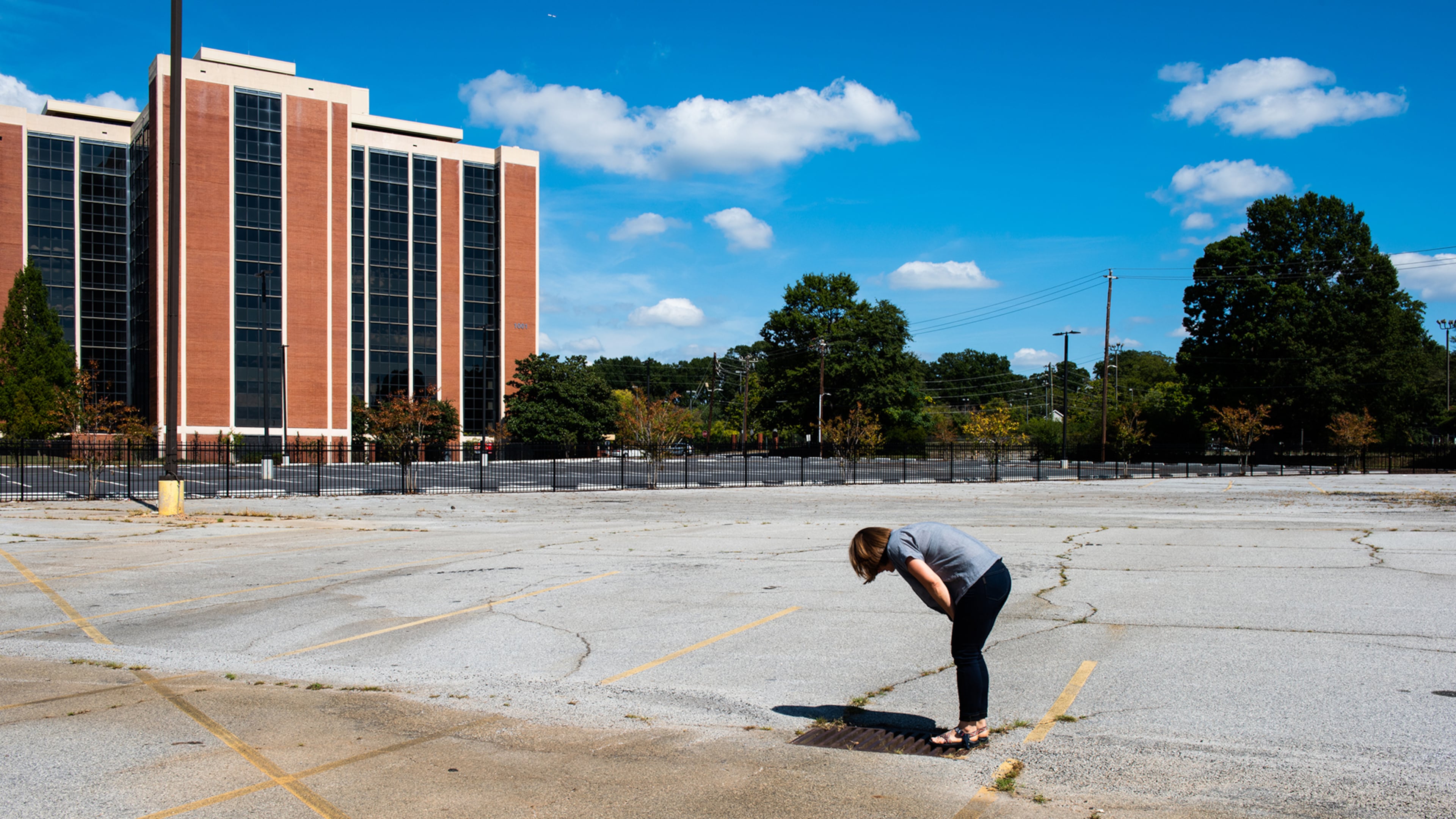New photo show explores hidden beauty of the Flint River in metro Atlanta

Travelers hustling through Hartsfield-Jackson Atlanta International Airport may be unaware that the headwaters of Georgia’s Flint River, the state’s second-longest river, begin south of downtown Atlanta, in East Point, and then run beneath the tarmac where their Boeing 737 idles.
It’s an ignominious beginning for a beautiful Georgia river — pushed beneath parking lots and airport tarmacs and diverted into enormous airport culverts to make way for urban sprawl.
But Atlanta photographer Virginie Kippelen wants Atlanta residents to witness the dawn of the Flint River — and other wild, natural zones that exist in often shockingly close proximity to our domesticated spaces.

Kippelen, who has lived in Atlanta for 18 years but is originally from the French coastal city of Dunkirk, points out that in Europe there is a tradition of monuments celebrating the origin points of rivers. The font of the Seine is memorialized at the Sources de la Seine park and the Danube’s origin point is marked by an elaborate sculpture in the German town of Donaueschingen. The Flint River has no such heralds as it makes its way to join the Apalachicola and the Gulf of Mexico.
Kippelen is determined to show what is “Lost in Sight,” the title of her new exhibition — part of the annual Atlanta Celebrates Photography event — which reveals the origin point of the Flint and the places where it surfaces and trickles through the city next to roadways and beneath paved parking lots.
“The reason why people don’t know it,” says Kippelen “is because they don’t see it.”
“If you go to coastal Georgia people understand climate change. But how do you talk about climate change or the environment here in Atlanta? It’s not a top priority.”
Kippelen’s installation is on view through the end of November at Hapeville Arts Alley Container Gallery, in a shipping container converted into an art gallery. The gallery is behind Hapeville City Hall and not far from the headwaters of the Flint in neighboring East Point.
The exhibition is Kippelen’s attempt to create an immersive environment and take maximum advantage of the long, narrow container gallery space. To that end, she has rendered images of the river’s flowing surface in vinyl on the gallery floor. Audio fills the space, featuring interviews with various stakeholders describing their relationship to the Flint.

“How do you make people see things,” was Kippelen’s objective in creating an installation that addresses a river often, literally, unseen but also the issue of environmental neglect and the human failure to be good stewards of their dwindling green spaces.
Also featured in “Lost in Sight” are Kippelen’s photographs of the devouring green vines and privet that consume a portion of the airport property, the indigenous snapping turtles and salamanders who manage to hold on to the diminished parcel of nature that Atlanta’s rapid development has pushed out and paved over. There is an image of a woman in boots and work gloves gazing skyward in what looks like a verdant wilderness but is in fact part of the airport’s property. An annual event allows area volunteers to clean up the garbage that moves through Georgia on the Flint. Kippelen also uses her camera to document the leak of 700 gallons of jet fuel from the airport into the river in September and the pads and barriers clogging the river in hopes of sopping up the fuel.

Kippelen describes her work as “documentary landscape photography.” She has also documented human incursions into nature in previous bodies of work like “(Re)Development” which chronicled the violent upheaval of nature required to build a new neighborhood near her Fernbank home.
“I like working with urban areas and nature, and how do the two collide,” says Kippelen.
ART REVIEW
“Lost in Sight” through Nov. 30. Gallery is open every Friday 11:30 a.m.-2 p.m. and by appointment. Free. Hapeville Arts Alley Container Gallery, 3468 N Fulton Ave., Hapeville. hapevillehistory@comcast.net or 404-641-5071, https://acpfest.exposure.co/lost-in-sight

